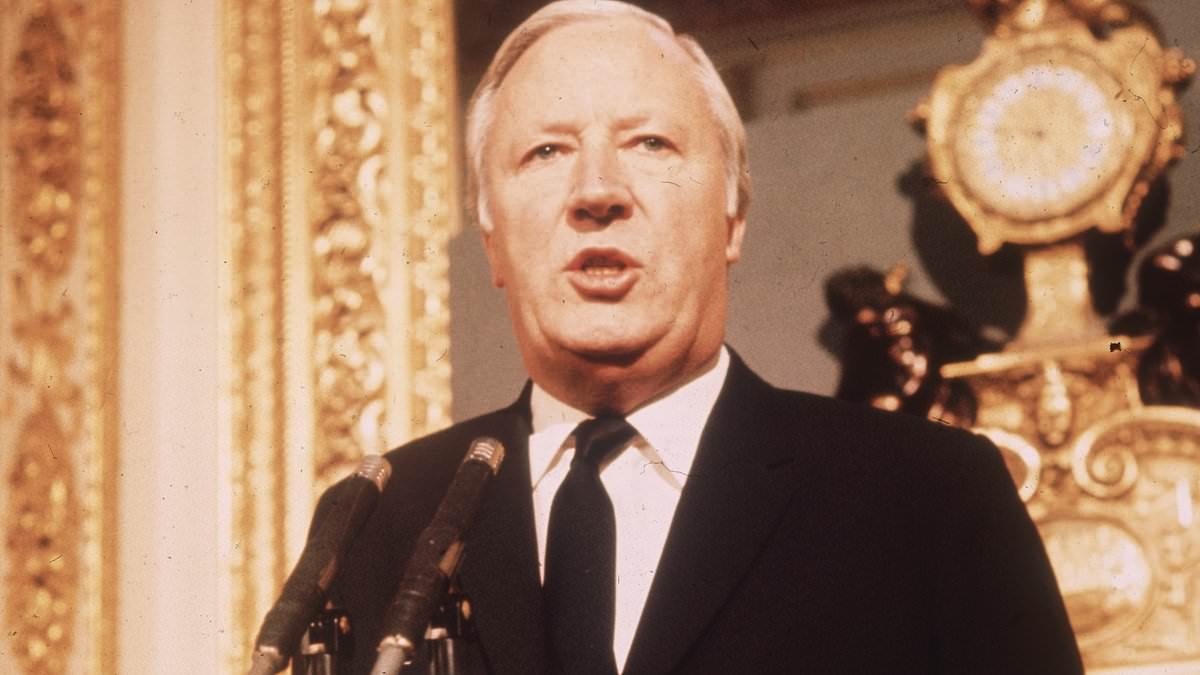Downing Street has released visitor books spanning 1970 when Edward Heath was in power to 2003, when Tony Blair was prime minister.
The three decades of volumes contain the names of distinguished guests who walked through the famous black door.
The books reveal a rare insight into those who visited the famous address – including royals, politicians, heroes and dictators.
The late Queen signed herself Elizabeth R, while the present King and his then wife were simply Charles and Diana.
Successive US presidents from Jimmy Carter to Ronald Reagan, George Bush senior and Bill Clinton to George Bush junior also visited.
At the end of his visit in 1989, the elder Mr Bush wrote: ‘With respect, friendship, and gratitude for this relationship that means so much’ to which his wife, Barbara, added: ‘Me too.’
In 1996 South Africa’s president Nelson Mandela noted ‘Visiting Downing St, No 10, is always an unforgettable experience’ while Czech president Vaclav Havel added a heart sign under his name.
One page in 1985 is signed by all five surviving former prime ministers, Harold Macmillan, Sir Alec Douglas-Home, Harold Wilson, Edward Heath and James Callaghan, as well as then PM Margaret Thatcher.
Ugandan dictator Idi Amin and Zimbabwe’s president Robert Mugabe are among the controversial figures to have signed.
The existence of the books came to light earlier this year when one was offered for sale at auction.
According to the auctioneers, Chiswick Auctions, the seller was a retired civil servant who found it after he was given permission to remove water-damaged boxes marked for incineration following a flood in Whitehall.
It had been expected to raise around £15,000 but the sale was suspended after the Cabinet Office claimed it was government property under the Public Records Act 1958.
The Cabinet Office declined a request for comment on the decision now to release all three books to the National Archives.
Ministers in Tony Blair’s government were advised to use Post-it notes for sensitive messages to avoid having to release them under new Freedom of Information, according newly-released official files.
The Labour government had originally passed the Freedom of Information Act in 2000 but as the full implementation date approached on January 1 2005 there was growing disquiet among ministers and senior officials at the implications.
One No 10 adviser, wrote to Mr Blair suggesting Post-it notes – which could presumably then be thrown away once the message had been read – as a way of getting round the requirement to disclose official material in response to FoI requests.
‘I also think Cab Ministers will want to make sure that Perm Secs are gripping this and information does not just filter out of the machine,’ she wrote.
‘Also people will want to give consideration to the vast array of emails etc…
‘Post-it notes are the answer!’
Mr Blair subsequently regarded the FoI Act as one of his greatest mistakes as prime minister, writing in his memoirs that he had been a ‘naive, foolish, irresponsible nincompoop’.
